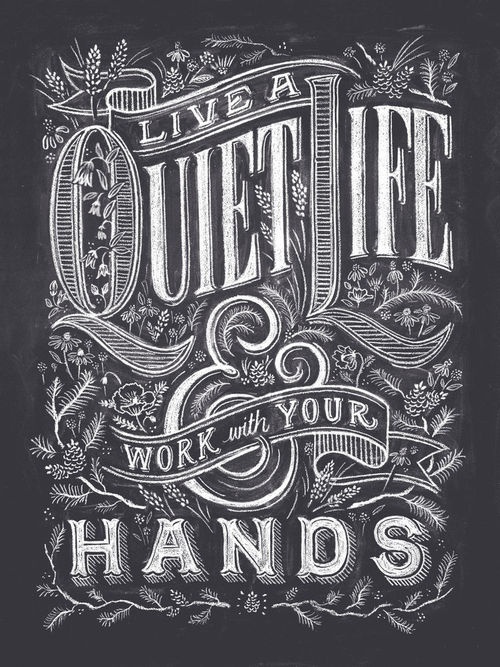Submitted Single Seeking Friends
Try as I might, I’m not sure I can hold the identifier “Single Complementarian poster-child” at bay much longer. We’re a rare breed—some of us sold a barefoot and pregnant mantra since we played dress-up in our mamas’ clothing and learned to make a perfect omelet. It’s hard to let go of dreams as big as these. For those of us who made it past 25 without a ring on our finger and a bun in the oven, more schooling seemed to be the only option. Slap an MA on the back of our name, we’re still casting sidelong glances at our sisters with misters. Many graduated with honors, fidelity, and an MRS, while most singles are pounding the pavement looking for a job to secure us some semblance of a future.
You ask why we’re a rare breed and I’ll tell you this: we’re not. Well, we are, but that’s just the nature of any conservative position in a swiftly tilting planet. But within the church we’re not all that rare. You don’t hear us talking much, though, and that’s something I’d like to talk about today.
Three reasons (of many) why single female complementarians may not be speaking up.
1. For too long the Church has relegated submission to what happens in the home and the sanctuary. The concept of submission to one to another (Eph. 5:21) has been glossed over in our rush to get to the juicy stuff in the following verses. Who wants to talk about something like submission to one another when there are husbands to be submitted to and wives to be loved? Well, I do. I want to talk about it because we don’t have a framework for life in Christ if we don’t understand being in something brings with it a certain amount of submission (sitting in a driving car, for example—you go where it goes.).
In the broad conversation we have often placed the discussion of submission firmly within the confines of marriage or our relationship to Christ, and not in regard to one another. This has created a generation of women who want to submit but are waiting to submit until Prince Charming comes along. In theory we’re complementarians, but we don’t have anyone standing in that gap, so practically, we’re egalitarians. It becomes difficult to talk about something we believe when because of brokenness in the family and an overwhelming absence of fathers, we’re not given a clear framework to practice it.
2. Speaking of frameworks, in the absence of the marriage we were nearly promised, we’re floundering a bit. I’m not going to make marriage out to be a cup of tea, but in marriage there comes a security and measure of certainty that simply doesn’t exist within singleness. Accidents and sin happens, yes, but if death comes in old age and fidelity is kept, there is the promise of a long-term security.
Godly singleness, on the other hand, is actually intended to be the opposite of long-term security. To be “concerned with the things of the Lord” (I Cor. 7:34) gives a wide berth, open pasture, and a degree of flexibility for the unmarried to discern what is the good and acceptable will of God. Our culture, however—and even in the church—lauds a security that will keep us constantly at odds with the things of the Lord. Single complementarians who have been primed for the simple security that marriage affords, might spend years trying to gain their footing in a world that wasn’t what they expected—even for the ones who understand Christ is their ultimate security. So where are we? Still trying to recover from the whiplash that is singleness in our 30s and on.
3. Single complementarian women simply haven’t needed to commit mental energy to contribute to the sort of study and scholarship necessary to defend a conservative theology of gender roles. Many married complementarian women are making radically different choices in the way their marriages look and so live with a constant awareness of the counter-cultural choices they’re making. But for singles unless their lives look radically different from those in the world—and a growing number in the church—they have nothing to defend. The biblical paradigm of singleness we’re given is one who is concerned with the things to the Lord, how she may please the Lord—this is a radical call in a tepid world, few rise to it fully, and even fewer defend it well. Without the pressure to defend, though, many won’t rise to the occasion of sound, biblical defense.
Don’t be discouraged. There is hope here and I think many complementarians are chomping at the bit to see a change in the conversation:
1. Change the culture of submission. Reframe the conversation. Speak of mutual submission, teach young people the value of covenantal living, helping and protecting one another in Christ. There are a few things we don’t have to wait for marriage for.
2. Change the expectation of marriage. Encourage it, yes, but don’t epitomize it or idolize it. Don’t allow those creeping cultural expectations to overtake what God is doing today. Today is a rich, rich day in the life of every person, single or married. Expect God to move today.
3. Encourage singles to be faithful with their concern for the things of God. It is no small thing to study to show ourselves approved. Christians ought to do everything within our capacity to help create a space for good scholarship and dialogue.
Proverbs 18:16 says, "A man’s gift makes room for him and brings him before kings." Singleness is a special and beautiful gift, and we need singles to come before the rulers of this world, standing firmly for the gospel in an ever-shifting culture.











